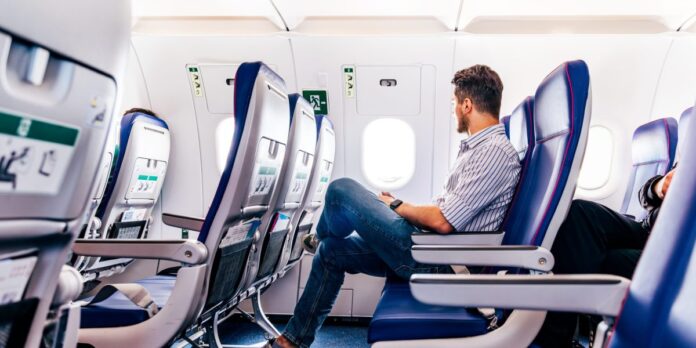For over five decades, low-cost airlines have revolutionized travel, making it more accessible by opening up new destinations at affordable prices.
Today, budget airlines are seeking to expand further, but their operational strategies vary significantly on opposite sides of the Atlantic, exploring new revenue streams in unique ways.
Europe Emphasizes Extras
In Europe, additional services are a defining characteristic of budget airlines. Companies like Easyjet have been promoting add-ons such as speedy boarding and extra legroom for years, which can sometimes make up over 50% of the ticket price.
Ryanair, known for considering charging passengers for restroom use, generated an average of €24 per passenger from these extra charges in the second quarter of 2023, marking a 10% increase. In contrast, the average airfare in Europe is slightly over €40.
Find out more: Michael O’Leary questions Britain’s 5 a.m. airport drinking culture as Ryanair boss continues battle with pubs
One significant distinction between Europe and the U.S. is that low-cost carriers in the U.S. typically operate from the same airports as legacy airlines, resulting in a smaller cost differential of about 20-30%. In Europe, budget airlines can enjoy up to 50% lower costs by operating from smaller, more economical airports.
The European market offers potential for growth, particularly in new African cities. Advances in aircraft efficiency allow for different seating configurations at reduced costs. Wizz Air plans to introduce the Airbus A321XLR in 2025, enabling a seven-hour flight from Gatwick to Jeddah or Abu Dhabi for just over €160 one-way.
Read more: Wizz Air proposes 300% bonus for its CEO following a ‘parade of black swans’
Both Ryanair and Easyjet have successfully expanded into the package holiday market. Easyjet Holidays, launched in 2022, anticipates a £180 million profit in 2024. Ryanair has partnered with 12 tour operators in the past year, providing budget plane tickets to existing package holiday providers like Tui and Expedia.
U.S. Budget Carriers Embrace Legacy Tactics
While budget airlines traditionally offered cheaper seats and optional extras, U.S. carriers are now adopting fare bundles and premium add-ons post-pandemic.
Spirit Airlines and Frontier Airlines now offer options for enhanced in-flight experiences, while Southwest Airlines has introduced assigned seating and premium seating options on over one-third of its flights.
According to Bloomberg, major U.S. carriers like United, American, and Delta are generating significant revenue by upselling passengers to higher fare categories.
With a shift towards inclusive fares on low-cost airlines, travelers are willing to pay more for improved quality and experiences, impacting market trends and revenue models.
Legacy carriers have an edge in loyalty programs and amenities, while budget airlines are forced to adapt to changing customer preferences by offering advanced seat assignments and premium options.
Future Challenges
In a landscape shaped by ‘revenge travel’ and economic challenges, airlines face uncertain profitability as they navigate market shifts. Despite a strong 2024 predicted by industry experts like John Grant, airlines must solve infrastructure and staffing challenges to sustain growth and profitability.
While uncertainties prevail, one thing is clear – the public’s interest in air travel remains strong, prompting low-cost carriers to evolve their business strategies to meet changing customer demands.






